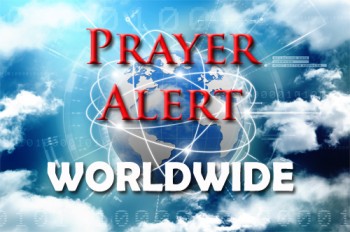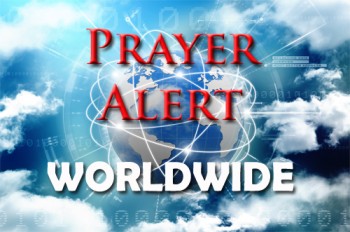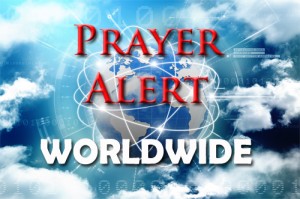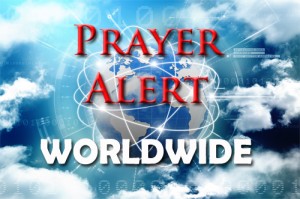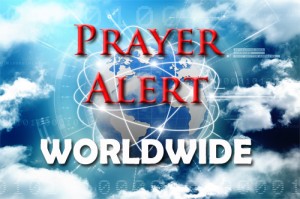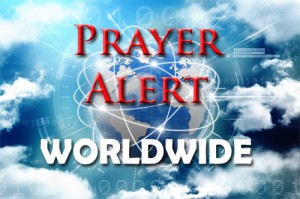Displaying items by tag: crisis
What next for Venezuela?
With their country in turmoil, both Nicolás Maduro and Juan Guaidó claim to be president, and neither has any incentive to back down. Guaidó has huge popular support, and is backed by many western powers (including the EU), but has little control over the levers of power. Although Maduro is still backed by allies such as Russia, Turkey, and Cuba, he is under unprecedented international pressure. Military top brass still support him, but there have been defections by junior officers. If he is to survive, he will need to keep the army loyal, which means finding a way to keep the ordinary soldiers paid. Another solution - but not one that would benefit ordinary people - is a military coup, but that might well mean a return to kleptocracy, mismanagement and authoritarianism. In any case, a change at the top would not placate the opposition, now emboldened and set on restoring democracy. Maduro has nothing to gain and everything to lose from stepping down, as he would probably be called to account for his authoritarian rule. Guaidó has promised an amnesty for any members of the armed forces who ‘contribute to the reestablishment of democratic order’. Another possibility, even if very unlikely, would appear to be outright conflict with the USA. Donald Trump, who publicly supports Guaidó, has just imposed sanctions on the country’s state-owned oil company.
Venezuela's Christians urge prayer as crisis worsens
On 24 January Venezuela’s opposition leader Juan Guaidó swore himself in as the rightful head of state, with the support of the USA and other nations in the region, as he attempts to remove President Maduro. He now faces the daunting task of establishing a transition plan without control over crucial state institutions and armed forces that have, so far, disowned him. Venezuela's churches have called for prayer as pressure mounts on Maduro to step down. Mass demonstrations against the economic mismanagement that has caused widespread poverty have been taking place. Pastor Samuel Olson, president of the Evangelical Council of Venezuela (ECV), invited the nation to pray 'together as a family, asking God that through His Holy Spirit He would care for, direct, and bless our nation in this critical hour of its history'. ECV are backing Juan Guaidó as the man 'called to conduct the nation in this period of transition'. See also
Homeless people's deaths up 24%
597 homeless people died in England and Wales in 2017, compared to 482 in 2013. 84% of this figure were men, and over 50% were because of drug poisoning, liver disease caused by alcohol abuse, or suicide (also known as the diseases of despair). The average age of death was 44 for men and 42 for women. Homeless charities say pressure on their services is increasing. The director of Shelter called the deaths a source of national shame, ‘a consequence of a housing system which fails too many people’. The CEO of Crisis called on the Government to fix the root causes of homelessness - building more social homes and a welfare system to support people who fall on hard times.
Christian ministry to seafarers
The Sailors' Society, an international charity based in Southampton, started a crisis response network (CRN) in South Africa in 2015, providing trauma care and counselling wherever necessary. This network provided support to its 100th case this week, with piracy, death at sea and abandonment accounting for 59% of those supported. 26% of those seeking crisis response were affected by piracy. The CRN now has 52 chaplains trained to offer crisis support to seafarers around the world. The International Maritime Bureau saw 107 actual or attempted attacks in the past six months, up from 87 in the same period of last year, with Nigeria and Indonesia the main piracy hotspots. On 31 October, eleven seafarers were seized by pirates off the Nigerian coast. Piracy, and the fear of piracy, is a massive issue for seafarers.
Yemen: 13 million at risk of death
The UN has warned of a historic famine that could put as many as 13 million people in Yemen at risk of death by starvation. The fierce fighting between Saudi-backed government forces and Houthi rebels, and the ongoing blockade of aid shipments, have created the conditions for humanitarian disaster on a scale not seen since Ethiopia in the 1980s or the Soviet Union in the 1930s. 75% of the population need food assistance; 8 to 10 million go hungry daily. Prices have doubled in the past month. The war has killed 10,000 to 50,000 civilians and displaced over two million. Civilian deaths are up 164% since the beginning of the siege of the port city of Hodeidah in June. When 17 were killed on 14 October by Saudi planes bombing buses waiting at a Houthi checkpoint, it was just another daily occurrence. People say, ‘Why is Saudi Arabia under attack over Jamal Khashoggi (a missing, presumed murdered reporter), but not over Yemen?’ See
Venezuela: unprecedented economic and political crisis
Six months ago, 93% of Venezuelans said their income was not sufficient to buy the food they need. 75% reported suffering weight loss, averaging 9 kg. The price of food is fifteen times the minimum wage, and prices continue to rise. The director of a Caracas-based health and nutrition charity said, ‘Malnutrition in Venezuela is a problem of corruption, not a lack of money’. Government price controls and other policies have crippled domestic production, and after the oil price drop caused imports to decrease dramatically, insufficient food is available for the over 30m Venezuelans. Meanwhile President Maduro’s efforts to consolidate power amid a deepening economic and humanitarian crisis have drawn widespread international condemnation. There are severe food and medicine shortages, soaring crime rates, and an increasingly authoritarian executive. 70% of the population is Roman Catholic and 29% percent Protestant. See
Children in care
Ninety children a day are taken into care in England and Wales, and currently there are 72,670 children in care - up 3% from 2016. Social workers are ‘firefighting’ the most serious cases late into the night. Professor Ray Jones, working in social services improvement, says that staff fear that children slip through the net as they try to keep up with rising pressures. Local government associations say children's services will face a £2bn a year funding gap by 2020. Social workers are spending a lot of time, late at night and during weekends, preparing for court proceedings. They are closing down work where children are unhappy and distressed because they have to concentrate on those in immediate danger. This causes considerable stress over concerns that they may be missing something.
Afghanistan: Kabul bombing
Ninety died and 400 were injured when a truck bomb shook Kabul's diplomatic quarter, in one of the worst terror incidents to hit Kabul. People struggled to deal with the number of casualties. The damage was enormous. The majority of the dead were civilian men, women and children. In recent years jihadist groups have called for attacks on civilians during Ramadan, which began on 27 May. The explosion raises questions about security procedures. However, on 1 June the president told the BBC Today programme that thirty attacks are foiled for every one that gets through. Three years after David Cameron declared ‘mission accomplished’ and Barack Obama said the American war in Afghanistan was over, this carnage demonstrates the opposite. The West does not want another escalating war, while generals on the ground call for more troops. In 1989 foreign powers turned their backs on Afghanistan, which enabled the Taliban to burgeon. Now, the country cannot be allowed to disintegrate again in the face of IS, with the internet accelerating the dissemination of both ideology and violence. See
East Africa: hardest months still to come
The food crisis in East Africa is escalating. Women and children are dying in South Sudan. The number of Kenyans needing emergency food has doubled in the past three months and could soon reach four million. Food prices are spiralling. Many people, weak with hunger, have to make long journeys just to find water. But the last months before the hoped-for harvest in June will be the hardest to bear. All food stocks were exhausted long ago. Most of the livestock are dead, and the crops are not yet fully grown. This is the period when people die. But a good harvest needs rainfall. The March-May rains in Kenya started late this year. In Uganda the rains started early but have been erratic - some areas getting too much and others too little. Mission agencies are giving support during this prolonged drought that has caused the death of livestock and people, but they need more help from the public as the crisis grows.
